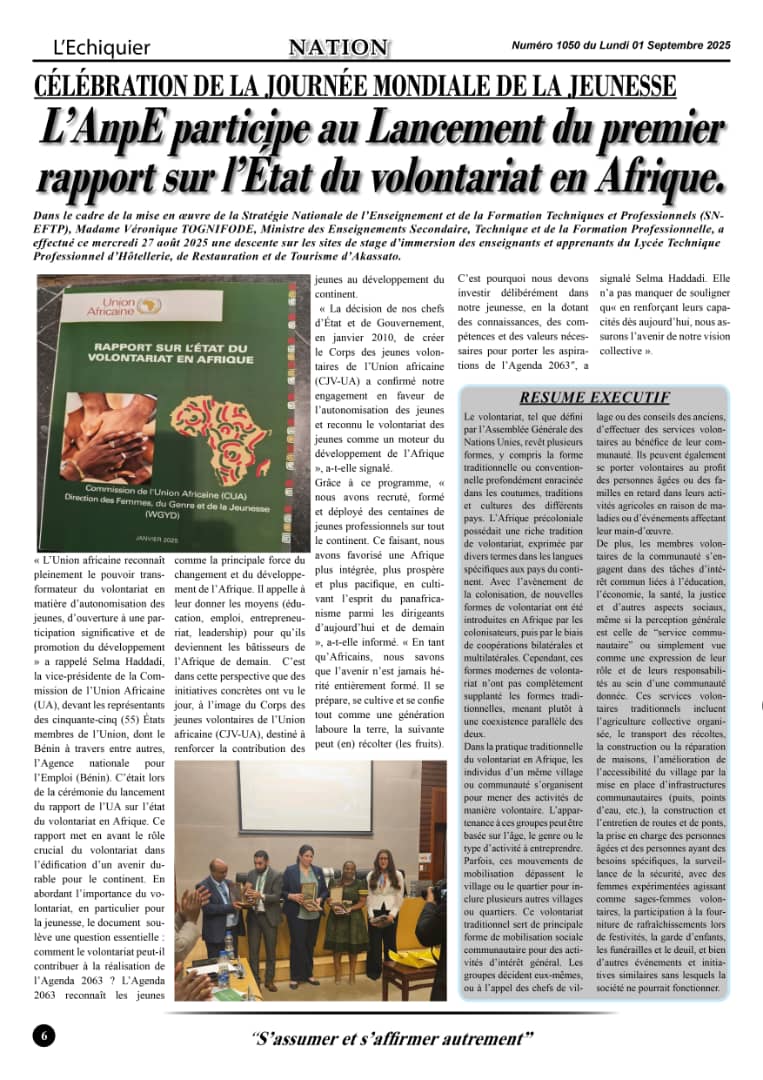The State of Volunteerism in Africa Report shares rich insights and practices of formal and Informal volunteering on the continent.It is often said that the 21st century will be Africa's century.It certainly looks so in the area of volunteering.The report helps to remove any doubt.
